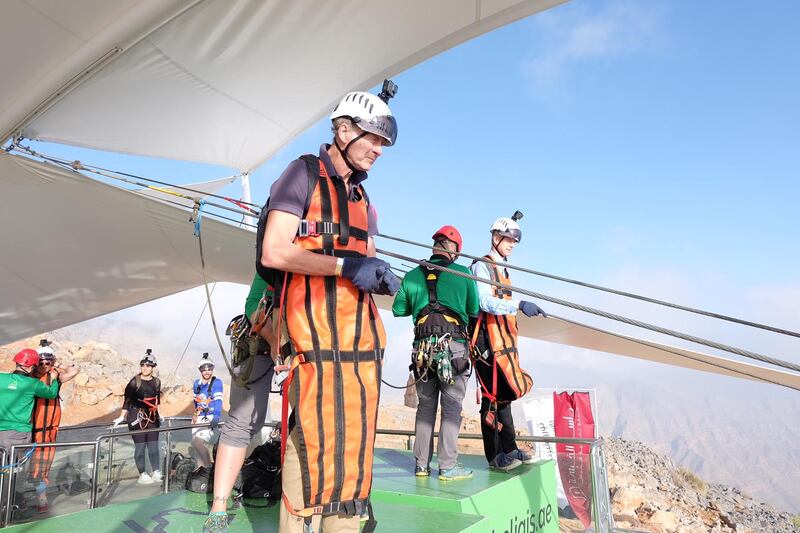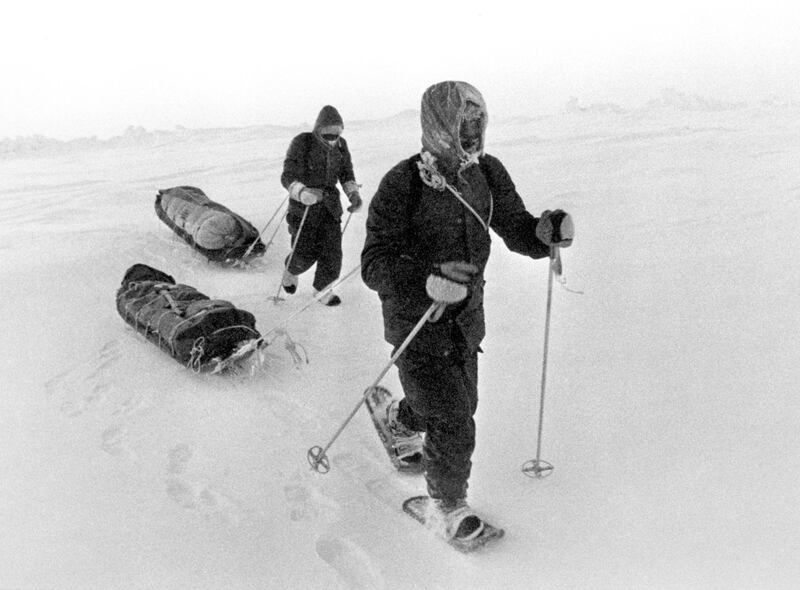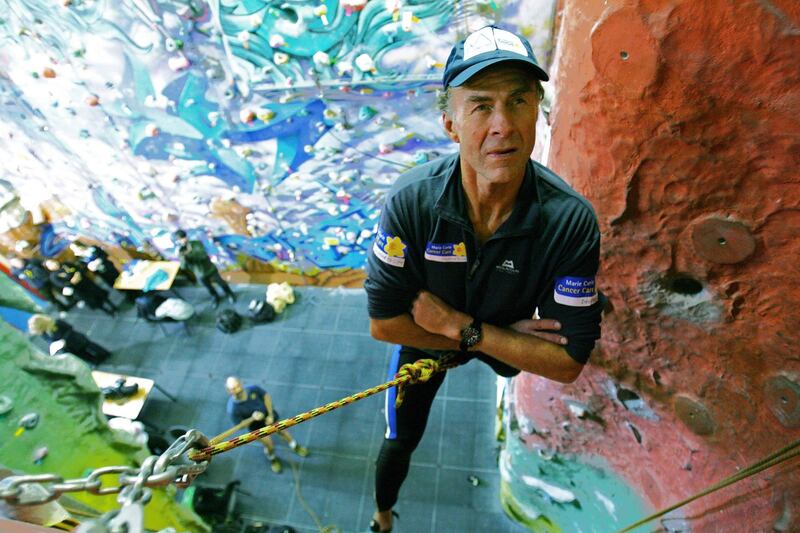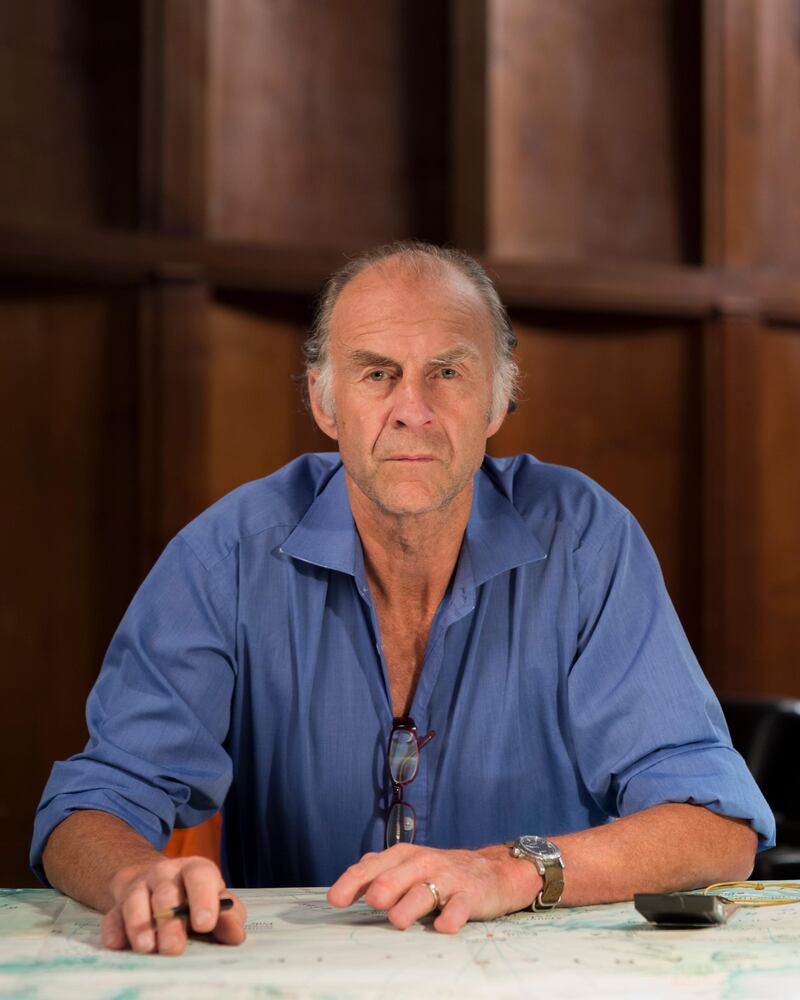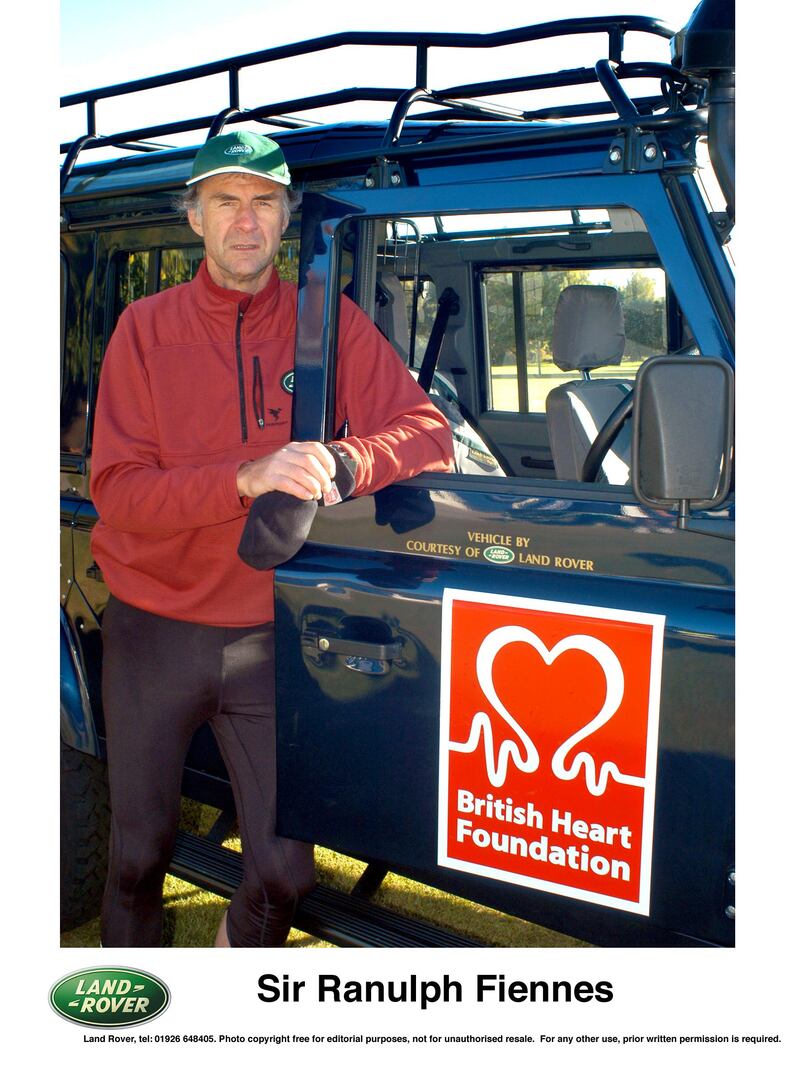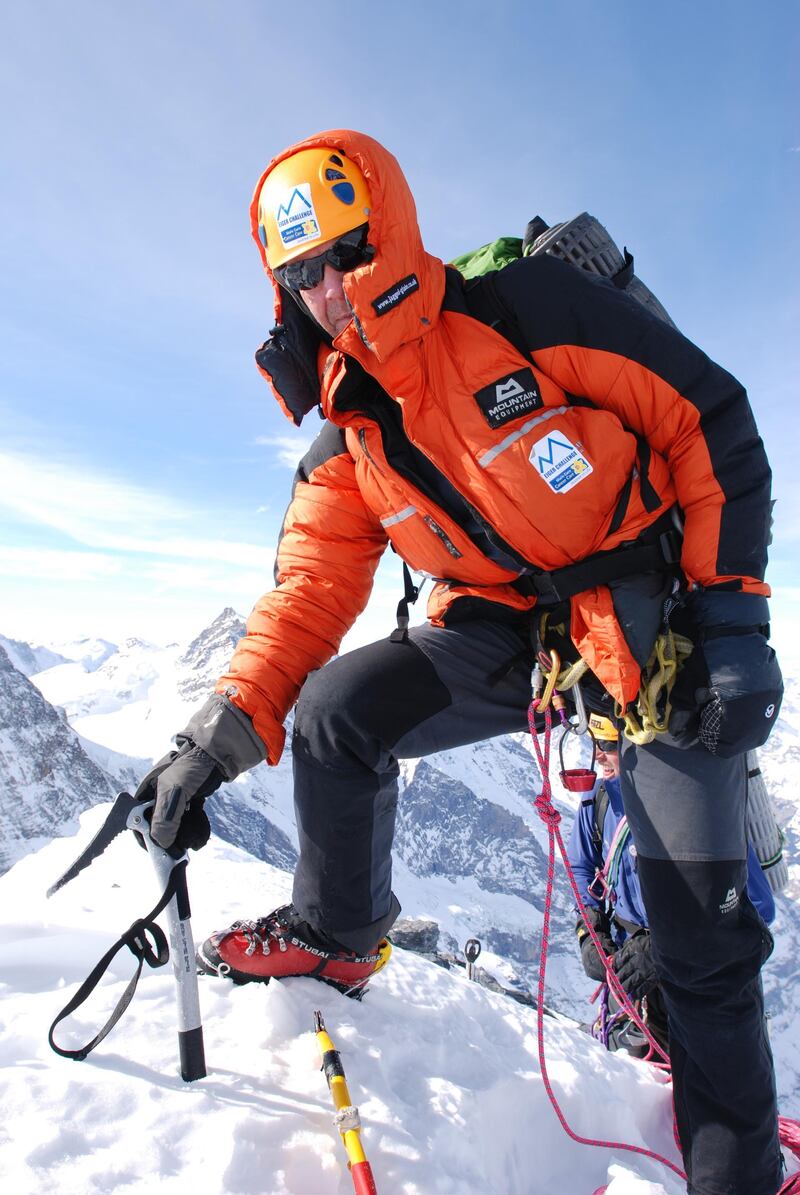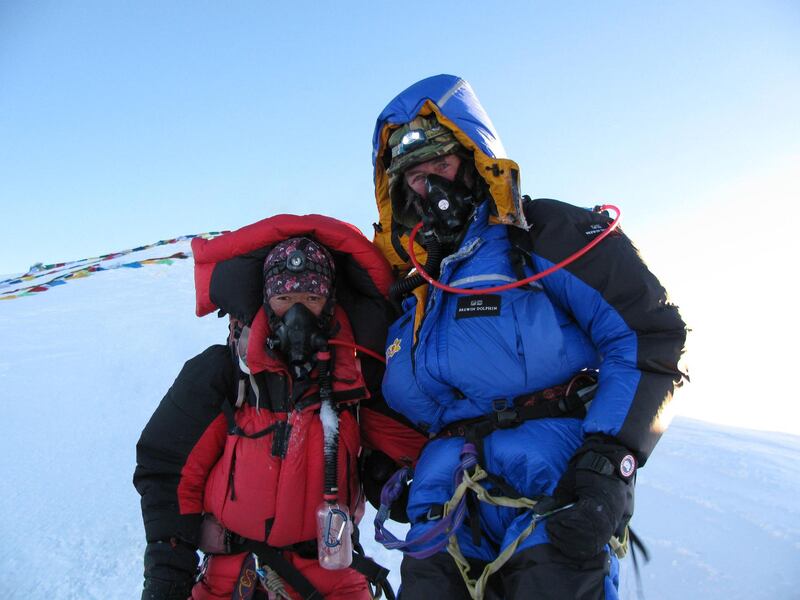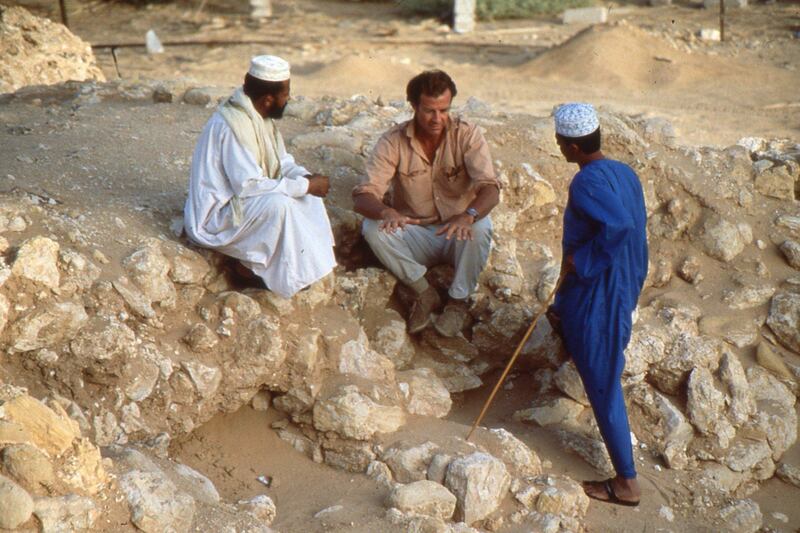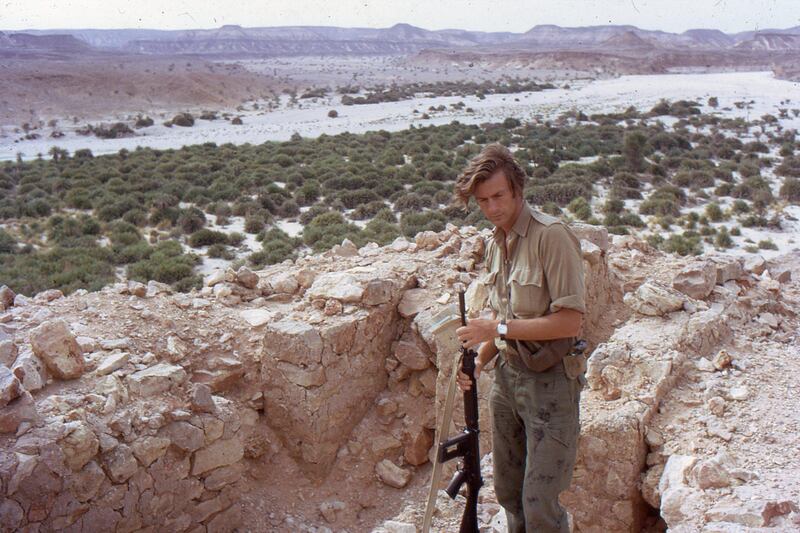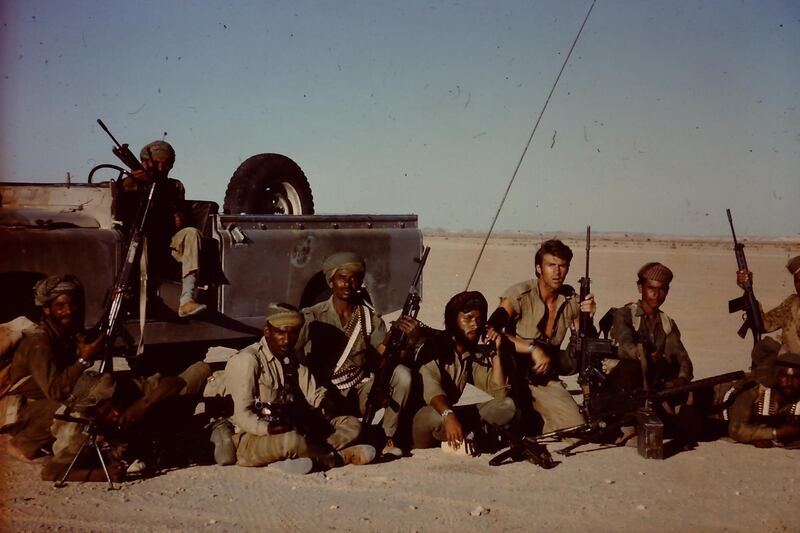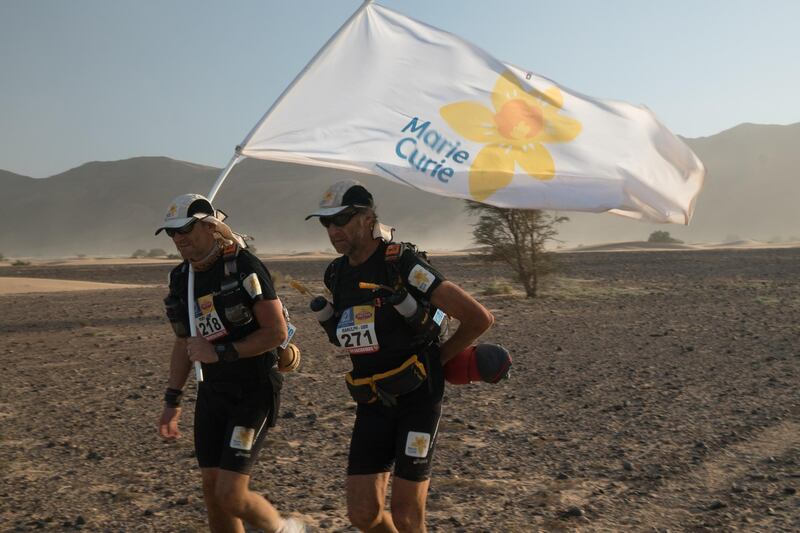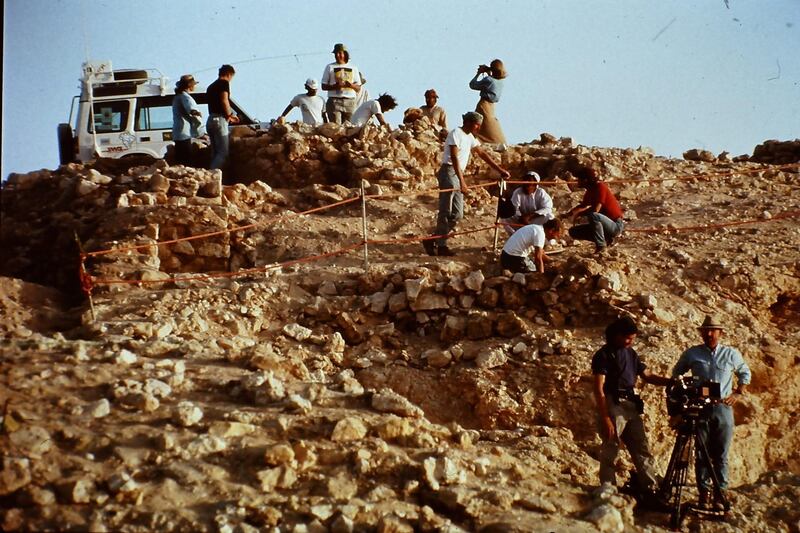“Twenty million. My wife and I thought that was a nice round number for the gravestone.”
Sir Ranulph Twisleton-Wykeham-Fiennes, 3rd Baronet, OBE, known to his friends simply as Ran, is squashed between me and another gentleman in the back seat of a Jeep as it throws us around the twists and bends of the road down Jebel Jais in Ras Al Khaimah. He is explaining the driving force behind the expeditions that have landed him the unofficial title of "world's greatest living explorer".
He does what he does to raise British pounds – £20 million (Dh102.5m) of them, if he has his way for various charities. He has raised £18.9m so far.
Fiennes is 74 and suffers terribly from vertigo, but that hasn’t stopped him from plunging head first down the aforementioned RAK mountain on its now famous zip line (the world’s longest). “If I start feeling a bit dodgy, I just close my eyes,” he says of his coping mechanism. Eleven years ago he scaled the north face of the Eiger – a fearsome, four-kilometre high mountain in the Bernese Alps – in an attempt to “cure” himself of the condition. “That didn’t work, either,” he says.
Two years before, he managed to get to 300 metres from the summit of Mount Everest, which he says caused no vertigo issues at all. “Everyone’s grandmother can do Everest over a weekend nowadays,” he jests. What thwarted his first attempt, though, was a fear for his heart because of chest pains, and he had to retreat. In 2003 he suffered his first heart attack, he says, while he was “reading a book, sat in a plane on the runway at Bristol Airport”. He remembers nothing of the event, emerging from a coma in hospital three days later. “It took them 13 goes to restart my heart,” he says.
A man of unstoppable determination, Fiennes vowed to go back to Everest, and in 2008, he managed to get within 400 metres of the elusive summit before being forced to turn back because of bad weather, bad timing and exhaustion. A year after that, he was back again – and this time reached the top, becoming the oldest Briton ever to do so, at the age of 65.
_____________________
WATCH: The National tries out Ras Al Khaimah zipline
The world's longest zipline: We try out the newest UAE adventure
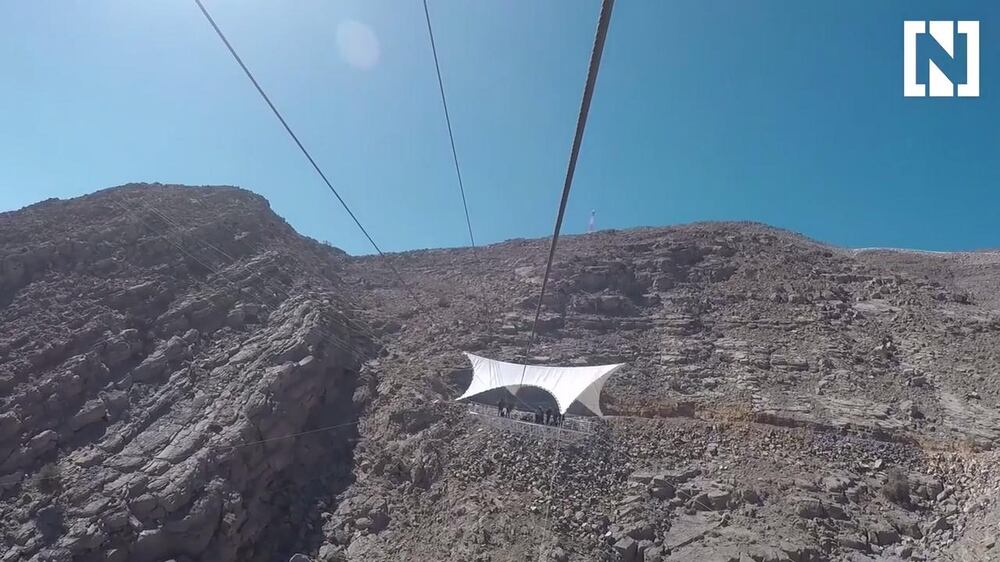
____________________
Fiennes was in the UAE following his turn as the keynote speaker at the Arabian Hotel Investment Conference in RAK hotel the Waldorf Astoria – a rousing discourse that hammered home the fact that you need the right people in your organisation and can't take risks by putting up with unsuitable team members. "We sack them," he says. "None of this namby-pamby British way of promoting them sideways – if they're a bad apple, you can't afford to let them ruin the barrel."
Giving these talks and writing books is how Fiennes puts bread on the table – the money raised through sponsorship of his expeditions bypasses him altogether – and he has carved a reputation for being a prolific author and one of the finest public speakers around.
Tales of derring-do roll out of Fiennes. He recalls that, four months after his initial heart attack and subsequent triple-bypass surgery, he took part in the Land Rover 7x7x7 Challenge, an event made up of seven marathons run in seven continents in seven days, raising money for the British Heart Foundation. His heart surgeon made it clear that he wasn't to allow his pulse to go beyond 130 beats per minute, but he forgot to take his heart-rate monitor with him and completed the gruelling runs totally unaware of whether he was in any danger.
He didn’t start out with adventure as his chosen career, though. His father was killed in Italy nearly four months before he was born, while commanding the Royal Scots Greys cavalry regiment during the Second World War. He trod on a German landmine and died from his injuries 11 days later in a Naples hospital. Fiennes wanted to follow the lead set by his father and fully intended to join the same regiment (“by which time the horses had been replaced by 50-tonne tanks”), but says his upbringing in South Africa hadn’t provided him with the best education.
“I was born in Windsor,” he says, “while it was being bombed during the war, which my mother didn’t like very much. So she moved me – aged one – and all my sisters to South Africa for 12 years. Without consulting us”.
He says it was a nice place to be brought up, but that the education system back then left a lot to be desired. “The only place that would take people of such low intellect was, of course, Eton College. I went there for five years, but my intellect was so low that I couldn’t even keep up with theirs. Luckily there was boxing, which didn’t require much intelligence.”
_______________
Read more:
Adventurer Adrian Hayes finds escape in reading
Use Sir Ranulph Fiennes as inspiration and reach out
Marathon des Sables is the ultimate test of endurance
Michael Palin, wandering star and grandfather
_______________
He relates these tales in such a deadpan way that it's difficult to know what has been embellished (none of it has). Some are completely outrageous, such as the time when he managed to get into the SAS without achieving any of the required exam results and was tasked with breaking into a bank "to steal £50,000". He visited the chosen branch under false pretences, and the manager, being friendly, demonstrated how the alarm system worked so he would feel safe about leaving "the family silver" in the bank's safekeeping.
“I drew up a plan for the robbery and went out for dinner in Birmingham. Stupidly, I left the paper with my instructions behind in the restaurant and the manager felt it necessary to inform the police.” What followed was a ministerial inquiry in Westminster and front-page newspaper headlines demanding to know why the most elite regiment in the British Army was stealing from banks. But despite the scandal, he managed to hold on to his job in the SAS for a while longer.
He kept a low profile for a couple of years and became an expert in blowing up things, learning how to cause maximum damage with minimal explosives. He says he always ended up with "a lot left over", which went into the boot of his car. "After a couple of months the boot was full and sweating," and he decided to put the explosives to good use by blowing up a concrete dam that had been built in picturesque English village Castle Combe by 20th Century Fox, which was filming Dr Doolittle there.
“Unfortunately, the police found out about it the day before and they managed to track me down. I was put in prison and was on police probation for six months, and then was discharged from the SAS and sent back to my old regiment.”
Following this debacle, he ended up working for the Sultan of Oman, fighting the Marxist uprising in Yemen and being decorated for bravery. "It was my experiences out there," he recalls, "that got me interested in exploring remote parts of the world. But after having served eight years in the Army, that was it, I had to leave, because that was the maximum time you could be in the forces without having any A Levels. So I went home, got married [to his childhood sweetheart, Ginny] and soon realised that neither of us had any money."
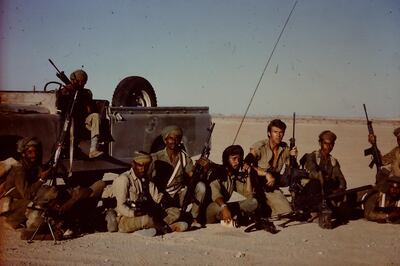
There was only one thing he reckoned would make them both an income, which was putting to use the adventure training he received while stationed in Germany to carry out sponsored expeditions, something Ginny was entirely happy with. She was fluent in Arabic, knew Morse code and could operate complex radio equipment, and ended up being an intrinsic part of the ensuing expeditions, which took them all around the planet.
It was Ginny who began to realise that “hot” expeditions weren’t as exciting to the public as “cold” ones, so she hatched a plan to journey around the globe on its polar axis – starting from Greenwich in London, south to Antarctica, across and out the other side, up to the North Pole and down to Greenwich again, only travelling by land or sea. This voyage, known as the Transglobe Expedition, took three years and has never been successfully repeated. What, though, is it like to return home after being away for such a length of time?
“If you’ve been everywhere with your wife,” he replies, “who’s basically your entire family, it doesn’t make much difference. Obviously there’s a lot of weeding to be done in the back garden and I couldn’t help notice that the price of butter had gone up while we were away.”
Ginny died in 2004 from stomach cancer, diagnosed the day after Fiennes returned from his seven marathons. In the space of 18 months, he lost his wife, sister and mother to cancer, and has since devoted much of his time raising money for Marie Curie, a British charity that provides care for terminally ill patients. "Marie Curie need £120m a year from the public just to keep the existing nurses going, whereas we only raise money for training new nurses," he says.
Fiennes is extremely switched on when it comes to public relations – he has to be. "The success of an expedition depends on how much noise you can make about it in the media, because that's what the sponsors want," he says. "We learnt that the best coverage comes from involving the television news crews, because a full-length documentary might get you a million viewers, while the news is on constant rotation and is updated as you go and you reach many times more people. This is how, when we failed to get to the top of Everest, we still managed to make £2.5 million – often it's not what you do, but what the PR people do that makes the difference."
Fiennes remarried a year after Ginny died, to Louise, a woman he met on a lecture tour, and became father to a daughter, Elizabeth, who is now 12 years old. Does he find it difficult being away from his family nowadays? He says that it's easier for him than others, having been brought up by his mother and sisters without a father figure, but that before Elizabeth was of school age, he made sure they travelled as much as possible. "Before she was 4, she had 82 stamps in her passport."
He has had two heart attacks, prostate cancer and lost the ends of his fingers to frostbite, performing DIY surgery after Ginny said he had become "disagreeable because of the pain", but I'm interested to know what was his closest brush with death so far. "Ah, that would be when I was in a Mini with Ginny driving, near Hyde Park Corner." Like all his perfectly timed anecdotes, this one is probably true, as well.
To book Ranulph Fiennes for a speaking engagement go to www.gordonppole.com or email gordon@gordonpoole.com

